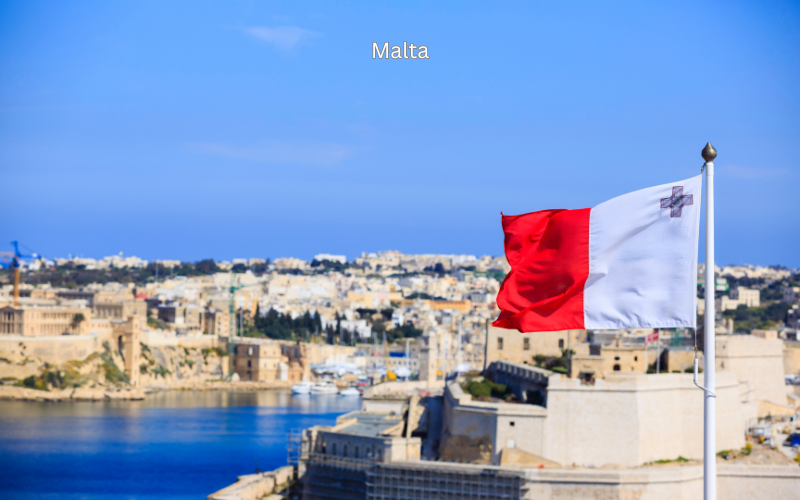
Malta’s healthcare system is currently facing a serious crisis, mainly caused by a critical shortage of nurses. In 2023, the number of nursing graduates from the University of Malta fell to its lowest point in ten years, totaling just 83, a significant decrease from the 149 graduates the year before. This decline is compounded by high resignation rates and challenges in keeping new graduates within the public healthcare system.
A Grim Future for Nursing
Paul Pace, head of the Malta Union of Midwives and Nurses (MUMN), has characterized the situation as “grim.” He notes that fewer than half of the recent nursing graduates are entering the government health sector, which is already suffering from persistent staff shortages. Moreover, around 20 graduates from last year opted to pursue careers in medicine instead.
Malta’s growing dependence on nurses from third countries is also proving to be problematic. A government effort initiated in September to recruit foreign nurses has reportedly fallen short of expectations. Pace points out that this issue is partly due to penalties imposed on foreign healthcare workers who terminate their contracts with private employers prematurely, along with substantial delays in processing their required documentation.
Departure and Fatigue Among Nurses
The MUMN has repeatedly alerted the authorities about alarming staffing levels, which contribute to burnout and a surge in resignations. The number of annual resignations, which was around 50 in 2019 and 2020, escalated notably in 2021 and 2022. The strategy to recruit foreign nurses to fill vacancies has been undermined by a departure of locally trained nurses, who are seeking improved opportunities in countries such as the UK, Germany, and other European nations.
Changing Workforce Trends
While the number of nursing graduates has declined, the number of medical doctors graduating has steadily increased, rising from 86 in 2013 to 128 last year, with 156 anticipated this year. Notably, nursing in Malta continues to be primarily a female-dominated profession, whereas the gender balance among doctors is more equal.
Godfrey Baldacchino, a sociology professor at the University of Malta, indicates that Malta’s labor market is undergoing changes akin to those observed in other economies that rely on imported labor. He notes that local workers are increasingly avoiding jobs considered undesirable due to factors like high risk, shift work, unsocial hours, strenuous physical demands, low social prestige, and occasionally, relatively low wages. The nursing and paramedical sectors are particularly impacted by this trend. Consequently, employers face a difficult decision: either invest in automation (such as robotics and telemedicine) or increasingly depend on foreign workers. Complicating this situation further, many foreign nursing and paramedical staff consider Malta a temporary location, acquiring qualifications and experience before moving on to higher-paying opportunities elsewhere.
Disrespect and Overwork
Anonymous nurses who spoke with the Times of Malta expressed a deep sense of disrespect towards their profession. One nurse mentioned the frequent requirement to work beyond their scheduled hours due to a lack of staff, describing this as a routine occurrence rather than an exception. Another nurse agreed, stressing that their current salary does not sufficiently reflect the demanding conditions they endure.
Mater Dei Hospital’s Space Crisis
Mater Dei Hospital is facing a significant challenge due to a critical shortage of space. Health Minister Jo Etienne Abela has recently pointed out that Malta requires a second national hospital to serve its expanding population. He has suggested transforming the Guardamangia area, which includes the unused St Luke’s and Karin Grech hospitals, into a “health village” to move non-clinical operations, thereby allowing Mater Dei to focus solely on clinical services. However, the staff at Mater Dei are concerned about the practicality of staffing a new hospital when the current one is already under considerable strain. Martin Balzan, leader of the Malta Medical Association, highlighted that space has consistently been an issue at Mater Dei, a situation worsened by rising population numbers and increased life expectancy, resulting in more elderly patients needing complicated medical care. He underscored the immediate necessity for more operating theaters, hospital wards, and emergency facilities, placing a priority on infrastructure for acute medical admissions. Mater Dei often operates above its designated bed capacity, frequently using “makeshift wards” in spaces not intended for patient care, including the Endoscopy Unit, Catheterisation Suite, ITU6, and even areas like ward foyers. Furthermore, previously designated spaces such as the library, a corridor, and the staff canteen have been repurposed into Major Incident Units (MIUs) to address ongoing overcrowding issues. The combination of a shrinking local nursing workforce, high turnover rates, the difficulties associated with depending on foreign workers, and severe space shortages at Mater Dei Hospital highlights a profound crisis in Malta’s healthcare system. Without immediate and thorough interventions, the nation’s long-term health and welfare could be in jeopardy.
Source: Times of Malta, 16/02/2024
[RZP]
